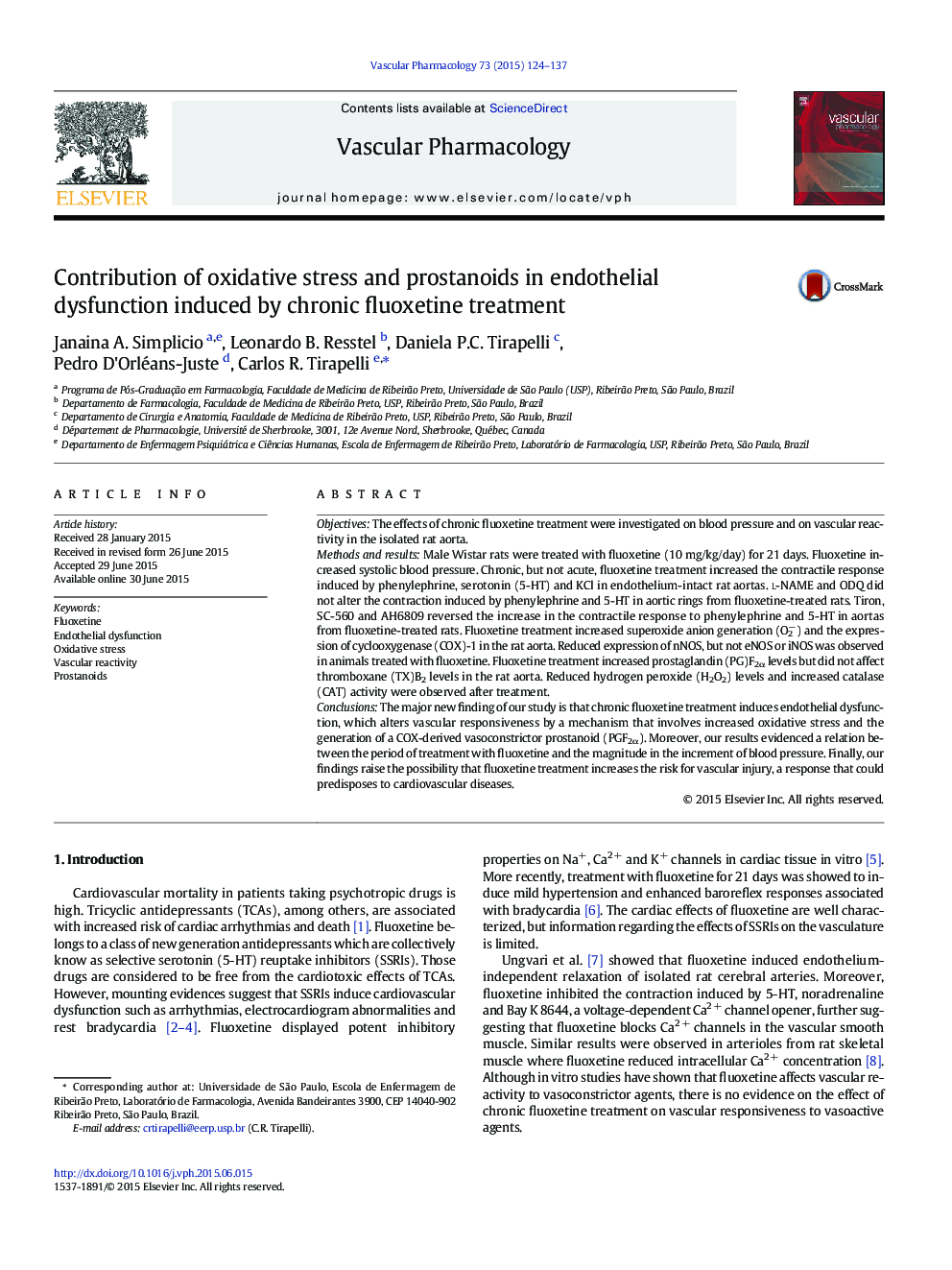| کد مقاله | کد نشریه | سال انتشار | مقاله انگلیسی | نسخه تمام متن |
|---|---|---|---|---|
| 2573963 | 1561245 | 2015 | 14 صفحه PDF | دانلود رایگان |
ObjectivesThe effects of chronic fluoxetine treatment were investigated on blood pressure and on vascular reactivity in the isolated rat aorta.Methods and resultsMale Wistar rats were treated with fluoxetine (10 mg/kg/day) for 21 days. Fluoxetine increased systolic blood pressure. Chronic, but not acute, fluoxetine treatment increased the contractile response induced by phenylephrine, serotonin (5-HT) and KCl in endothelium-intact rat aortas. l-NAME and ODQ did not alter the contraction induced by phenylephrine and 5-HT in aortic rings from fluoxetine-treated rats. Tiron, SC-560 and AH6809 reversed the increase in the contractile response to phenylephrine and 5-HT in aortas from fluoxetine-treated rats. Fluoxetine treatment increased superoxide anion generation (O2−) and the expression of cyclooxygenase (COX)-1 in the rat aorta. Reduced expression of nNOS, but not eNOS or iNOS was observed in animals treated with fluoxetine. Fluoxetine treatment increased prostaglandin (PG)F2α levels but did not affect thromboxane (TX)B2 levels in the rat aorta. Reduced hydrogen peroxide (H2O2) levels and increased catalase (CAT) activity were observed after treatment.ConclusionsThe major new finding of our study is that chronic fluoxetine treatment induces endothelial dysfunction, which alters vascular responsiveness by a mechanism that involves increased oxidative stress and the generation of a COX-derived vasoconstrictor prostanoid (PGF2α). Moreover, our results evidenced a relation between the period of treatment with fluoxetine and the magnitude in the increment of blood pressure. Finally, our findings raise the possibility that fluoxetine treatment increases the risk for vascular injury, a response that could predisposes to cardiovascular diseases.
Figure optionsDownload high-quality image (91 K)Download as PowerPoint slide
Journal: Vascular Pharmacology - Volume 73, October 2015, Pages 124–137
